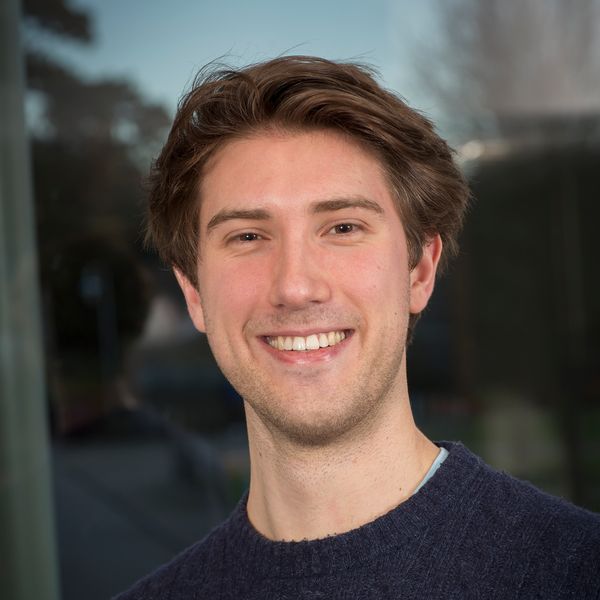| University | University of Groningen (UG) |
| Institute and/or group | Groningen Biomolecular Sciences & Biotechnology Institute (GBB) |
| Advisors | Prof. dr. Matthias Heinemann (UG), Prof. dr. Bert Poolman (UG) |
| oLife Research Areas | II. Defining properties and synthesis of Life, from the molecular to the biosphere level III. Modelling, predicting and steering of Life |
| Start date
End date Next career step |
October 1, 2020
January 31, 2024 Extension in Groningen till 31-7-2024 |
Profile of the fellow
Andre has a varied background in biology and enjoys combining wet-lab molecular approaches with dry-lab bioinformatics techniques. He studied Natural Sciences at the University of Cambridge, specialising in Neuroscience for his 3rd year and Systems Biology for a 4th year integrated Masters. During his Masters, Andre briefly flirted with the ‘Origin of Life’ field when he worked on a project with Markus Ralser looking into a pre-biotic metabolism-like reaction network.
Andre was then awarded a 4-year PhD studentship by the BBSRC which he undertook with Jon Houseley’s group at the Babraham Institute in Cambridge. His PhD involved characterising the effects of copy number variation at the highly conserved ribosomal DNA (rDNA) locus in nematode worms and yeast; he particularly focused on how such copy number amplification may contribute to the ageing process. Half-way through, Andre also took time out for an entertaining 3-month internship with Entomics Biosystems, which saw him growing maggots and trying out de novo transcriptome assembly. He happy to be part of Matthias Heinemann’s group as an oLife Fellow where he will unravel the mechanisms linking cellular metabolism, protein synthesis, and cell replication.
In his spare time Andre enjoys Sci-Fi, nature walks, and collaborative virtual reality development.
Cellular cycles – connecting metabolic oscillations, protein translation, and cell division
Cell division and replication is a fundamental aspect of life as we know it, therefore understanding the mechanisms which give rise to this process is critical for a comprehensive picture of what ‘life’ is. Our current understanding of cell cycle control rests primarily on the cyclin/cyclin-dependent kinase (CDK) systems, the discovery of which was awarded a Nobel prize in 2001. Canonically, progress through the different cell cycle phases is thought to be gated by waves of gene transcription and regulation, ultimately regulated by the cyclical expression of cyclin protein genes.
However, recent work from the Heinemann lab reported that critical moments in the cell division cycle are strongly phase locked with metabolic fluctuations in budding yeast (Saccharomyces cerevisiae). These metabolic oscillations can be measured as periodic abundance changes of central metabolic cofactors such as NAD(P)H and ATP. This suggests that cellular metabolism operates very differently over the course of a cell division cycle. Importantly these metabolic oscillations continue even under conditions where cells may not undergo division cycles; the implication is that metabolic dynamics are not simply a by-product of the cell cycle, but rather may be important in driving the process of replication.
A hint as to how metabolism may be linked to cell division can be found in other recent work which indicates that protein synthesis peaks early in the cell cycle, just before cells commit to a division programme. A rapid increase in protein synthesis rate, without proportional cell growth, allows a cyclin protein to temporarily reach the concentration required to initiate division. Curiously, this peak in protein synthesis rate is precisely timed relative to metabolic cofactor oscillations too. There are plausible hypotheses for why this may happen, but it is less clear how or why protein synthesis then slows down for much of the cell cycle. Since protein synthesis rate appears to be a bridge between cellular metabolism and cell replication, Andre is interested to study the mechanisms behind protein translation rate variation. His larger goal is to then use any potential targets identified in this work to further untangle the links between metabolism and cell division.

Dr. Andre Zylstra
